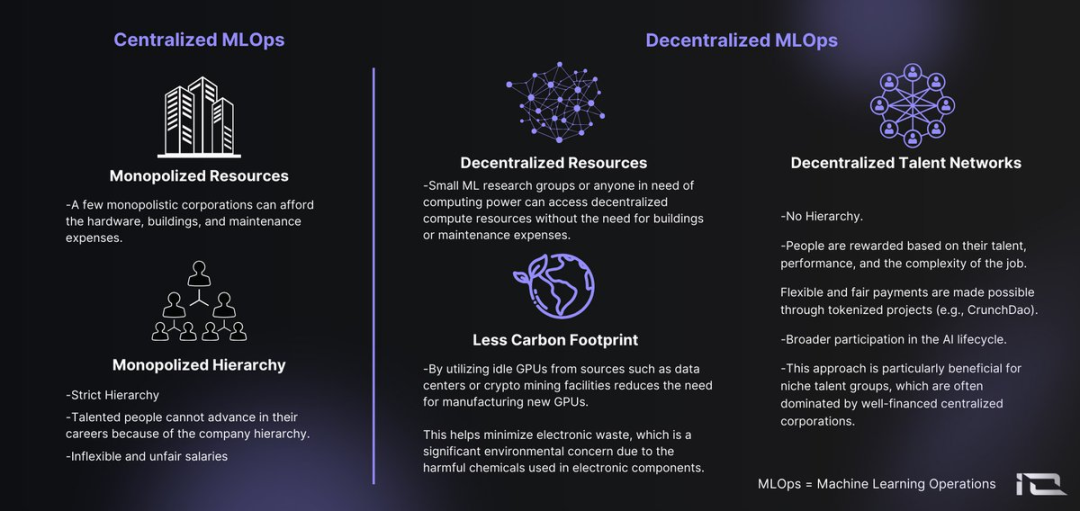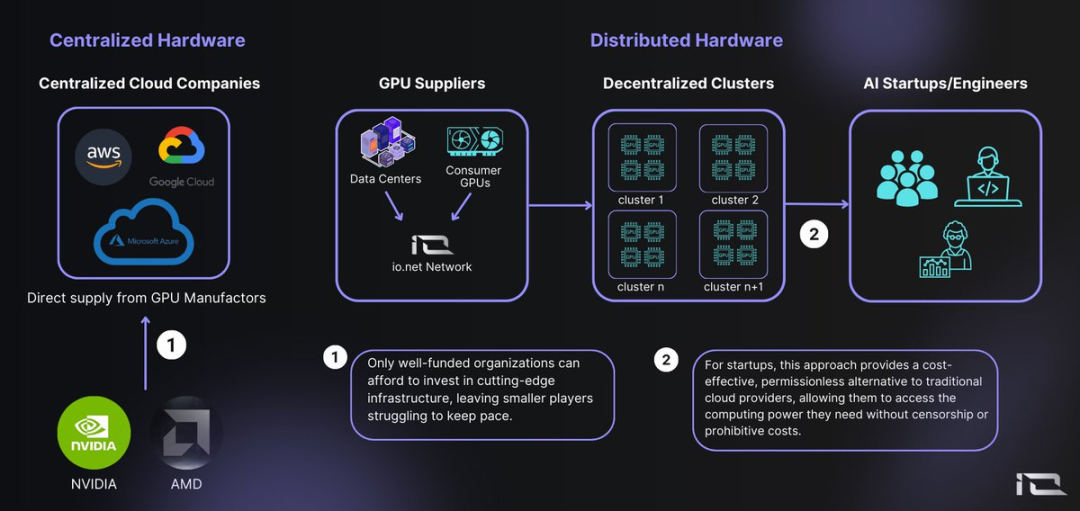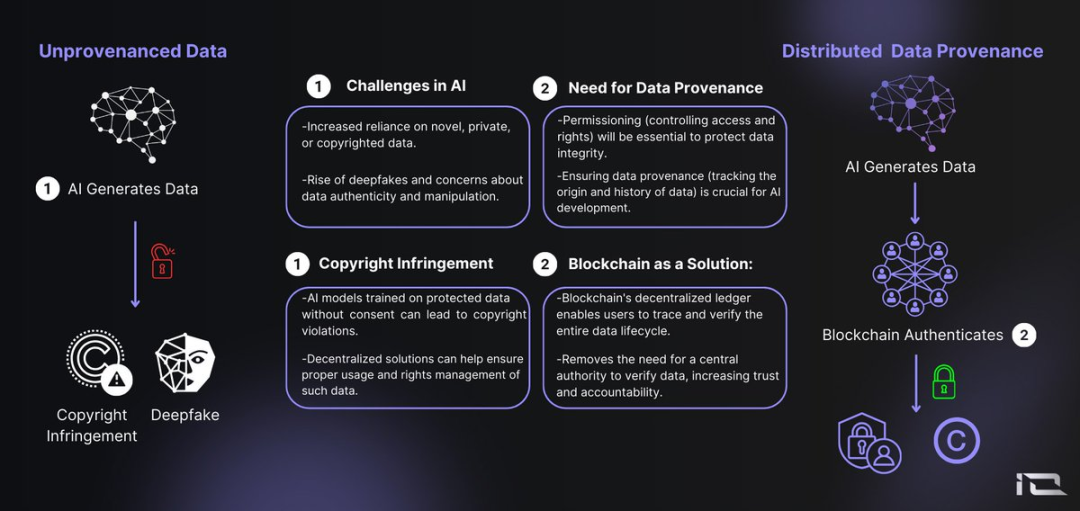Decentralized MLOps, distributed hardware, and blockchain-based traceability solutions pave the way for a more decentralized and inclusive future for AI.
Written by: io.net
Translated by: Alex Liu, Foresight News
Artificial intelligence has rapidly become one of the most centralized forces in the world. Developing and deploying AI requires substantial resources — including significant capital, advanced computing power, and highly specialized talent. Of course, only the most well-funded organizations can afford to invest in cutting-edge infrastructure and attract top talent, leaving smaller companies struggling to keep up.
Traditionally, MLOps (Machine Learning Operations) has been controlled by large organizations that manage everything in-house, from data collection to model training and deployment. This closed ecosystem monopolizes talent and resources, creating significant barriers for startups and small companies.
One of the most exciting ways blockchain challenges this centralization is by supporting decentralized, permissionless AI models. By leveraging distributed communities to secure, validate, fine-tune, and verify every stage of the LLM (large language model) deployment process, we can prevent a few participants from dominating the AI field.
io.net is closely monitoring the intersection of AI and blockchain, identifying three key areas that can reshape the landscape.
Distributed MLOps

In traditional MLOps, large tech companies hold the upper hand. They have the resources to monopolize talent and run everything in-house. On the other hand, decentralized MLOps uses blockchain and token incentives to create a distributed network that allows for broader participation throughout the entire AI development lifecycle.
From data labeling to model fine-tuning, decentralized networks can scale more efficiently and equitably. The talent pool can be adjusted based on demand and complexity, making this approach particularly effective in areas where talent is typically concentrated in well-funded companies.
Take CrunchDao as an example; they have built a decentralized model similar to Kaggle, where AI talent can compete to solve problems for trading companies. As specific datasets become increasingly common, companies will increasingly rely on these talent networks to provide "humans in the loop" for supervision, fine-tuning, and optimization. Another project, Codigo, is using a similar approach to build a decentralized network of crypto developers, who earn tokens by training and refining cryptocurrency-specific language models.
Distributed Hardware

One of the biggest barriers to AI development today is access to cutting-edge GPUs, such as Nvidia's A100 and H100. They are crucial for training large AI models, but their costs are prohibitive for most startups. Meanwhile, companies like AWS are striking direct deals with Nvidia, further limiting access for small businesses.
This is why blockchain-based decentralized models like io.net are needed. By enabling people to monetize idle GPUs (whether they are located in data centers, cryptocurrency mining facilities, or even gaming consoles), small companies can obtain the computing power they need at a very low cost. It is a permissionless, cost-effective alternative to traditional cloud providers, without the risks of censorship or high fees.
Distributed Traceability

As Balaji Srinivasan said, "AI is rich digital products, cryptocurrency is scarce digital assets; AI generates, cryptocurrency verifies." As AI models increasingly rely on novel, proprietary, or even copyrighted data, and as the threat of deepfakes grows, ensuring data provenance and proper licensing becomes more critical.
Copyright infringement is a serious issue when it comes to training AI models on protected data without proper consent. This is where decentralized traceability solutions shine. By using a transparent, decentralized ledger on the blockchain, we can track and verify data throughout its entire lifecycle (from collection to deployment) without relying on centralized authorities. This adds a layer of trust, accountability, and respect for data rights, which is crucial for the future development of AI.
Conclusion
The convergence of artificial intelligence and blockchain technology offers exciting new ways to challenge the centralization threats in AI development. Decentralized MLOps, distributed hardware, and blockchain-based traceability solutions are all playing a role in creating a fairer, more scalable AI ecosystem. These models allow for dynamic talent networks, leverage idle computing resources, and ensure data reliability, paving the way for a more decentralized and inclusive future for AI.
免责声明:本文章仅代表作者个人观点,不代表本平台的立场和观点。本文章仅供信息分享,不构成对任何人的任何投资建议。用户与作者之间的任何争议,与本平台无关。如网页中刊载的文章或图片涉及侵权,请提供相关的权利证明和身份证明发送邮件到support@aicoin.com,本平台相关工作人员将会进行核查。




